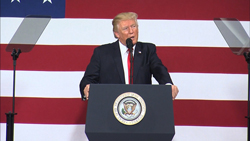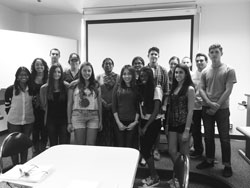On Sept. 21, Russian President Vladimir Putin announced a “partial mobilization” of reservists. This would mean that any Russian citizen who has gone through military training will be called into duty as reinforcements for the ongoing conflict in Ukraine.
Partial mobilization would only call out these specific groups of people, as opposed to a general mobilization, which would draft individuals from the general population, put all economic efforts into the military, and make a drastic turn towards a much larger war. This announcement was the nation’s first military mobilization since World War II.
This mobilization will call for up to 300,000 reservists, according to Russian Defense Minister Sergei Shoigu. It has also been reported that a number of Russians have already begun receiving summons for their service in the ongoing war in Ukraine.
It is unknown if Russia actually has 300,000 reservists to call for their required participation, but the Institute for the Study of War claims, “the Russian reserve has over two million former conscripts and contract servicemen on paper, but few are actively trained or prepared for war.”
This could mean that this partial draft could be way less beneficial to the Kremlin than they are threatening that it will be. However, Shoigu also went on to say that the country’s “mobilization resource amounts to 25 million people, and a little more than one percent of this number falls under partial mobilization.” This could pose a challenge to Russia’s strained demographic situation.
The announcement of this partial mobilization led to a number of protests in response. The Guardian reported that over 2,000 Russian citizens have been detained as a result of their participation in these peaceful protests, with people as young as children being arrested.
Russian citizens that consider themselves members of the Vesna (Spring) movement, a group of protest organizers, have gathered in protests across Russia, using slogans such as “No Mobilization to the Grave” as a direct response to Putin’s newest threats.
Outside of these protests, men between the ages of 18-65, who are eligible for mobilization according to Putin’s order, have begun to leave the country in significant numbers.
According to Reuters, a large number of Russian men have fled the country to Kazakhstan, Georgia, and other neighboring states. Reuters specifically reports that 40,000 Russian men have fled to Georgia since the start of the war in February, and currently queues to enter that country are 48 hours long. The Russian Government has recently announced it will not request extradition of those fleeing from the mobilization.
This group also released a statement saying, “Thousands of Russian men—our fathers, brothers and husbands—will be thrown into the meat grinder of war. What will they die for? What will mothers and children shed tears for?” A large portion of Russian civilians do not feel comfortable with the decision to order a partial mobilization of the population.
Hannah Redrup, a junior political science student at Monmouth, responded to the question of what potential reactions and effects she believed would come as a result of Putin’s announcement of partial mobilization on an international scale. She said, “I’m concerned about how this plays out from here.”
Redrup continued, “It seems that the conflict is only continuing to get worse with no way to make it better. The nuclear threats between Russia and the US don’t make me feel any better and I don’t think they set a good way forward for how to end this conflict without making it far worse.”
Nashaviyah Steward, a senior political science student at Monmouth, also shared thoughts on Putin’s recent military commands and their implications for the world around her. She said, “In my opinion, even partial mobilization seems like an overreaction on Putin’s part….Several larger countries have already threatened to get involved if Putin’s attacks get more aggressive, so this act of violence seems like it could be detrimental for the rest of the world. If this continues, there could be calamitous consequences.”
It has now been nearly seven months since Putin first announced his “special military operation” in Ukraine, which he described would call for the “demilitarization and denazification” of the country. Russia invaded the country via a series of land, sea, and air attacks. Russian offensives left Ukrainian President Volodymry Zelensky no other choice than to declare martial law and also call for mobilization to ensure the Ukrainian Armed Forces could properly defend the country.
Putin’s actions sparked international unanimous condemnation, with a number of sanctions being placed on Russia from numerous different states, and the United Nations Chief Antonio Guterres demanding for President Putin to stop his attacks on Ukraine “in the name of humanity.” However, Ukraine’s successes early on in the war around the Kyiv region and its recent offensive in Kharkiv has made what Russia might have predicted would be a landslide victory turn into seven months of successful resistance on the Ukrainian forefront.



